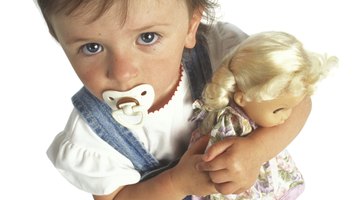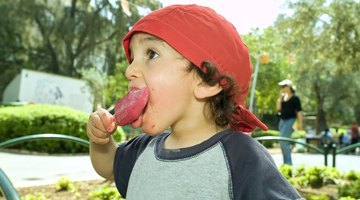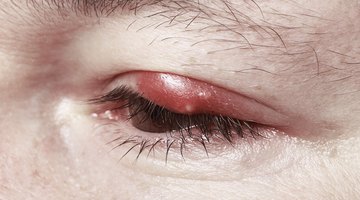Coughs & Pink Cheeks in Children
Fifth disease has been called slapped cheek disease because of the unmistakable redness on the face of children.
If your child has a cough and pink cheeks, this virus is likely the culprit causing your child’s mild discomfort. Always consult with your doctor for a proper diagnosis and treatment of your child’s symptoms.
Identification
Fifth disease starts with cold-like symptoms of a low-grade fever, cough and general feelings of malaise.
Once the illness seems to pass, a rash appears on the cheeks that looks like your child has been slapped on both sides of the face. The rash on your child’s cheeks will be bright red or pink. The rash soon spreads to the body’s trunk and extremities.
As the rash disappears, it has a lace-like appearance, but the rash can reappear if your child‘s body temperature rises.
Older children will sometimes experience joint pain from fifth disease. Fifth disease is most common for children between the ages of 5 and 7 years and usually occurs during the spring.
Cause
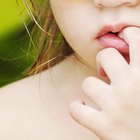
My Toddler Has Red Palms & Soles of the Feet
Learn More
Fifth disease is caused by the parvovirus B19, which is spread by the throat and nasal secretions of an infected individual.
If your child was around someone with fifth disease, your child could have caught the virus when the infected person coughed, sneezed or even talked.
Infected droplets go airborne, and then your child inhales the virus.
Your child can also touch an object contaminated with the virus, which contaminates your child’s hands. If your child places his hands in his mouth to eat, suck a thumb or bite his nails, then he becomes infected with the virus.
Treatment
Since this illness is caused by a virus, antibiotics are ineffective.
There is no treatment for parvovirus B19, but you can make your child feel comfortable by giving him acetaminophen to lower his fever or to reduce discomfort from joint pain. A cool-mist humidifier can moisturize a throat that’s dry from coughing.
Once the rash is present, your child is no longer contagious and can return to school. Never give children under the age of 18 years aspirin because it can cause a potentially fatal illness called Reye’s Syndrome.
Prevention
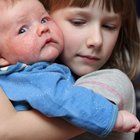
Redness on the Face in Children
Learn More
The best way to prevent the spread of parvovirus B19 is to wash your hands frequently, especially before eating and after using the restroom. Encourage your children and other members of the household to wash their hands often as well. Give younger children proper hand-washing steps by showing how much soap to use and having children sing the ABCs while rubbing their hands together.
Ensure you and your children clean under the nails as well before rinsing soap. If sinks are not available, use hand sanitizer. Fifth disease rarely causes complications for children, but keep your infected child away from pregnant women because the virus has severe complications for an unborn baby.




